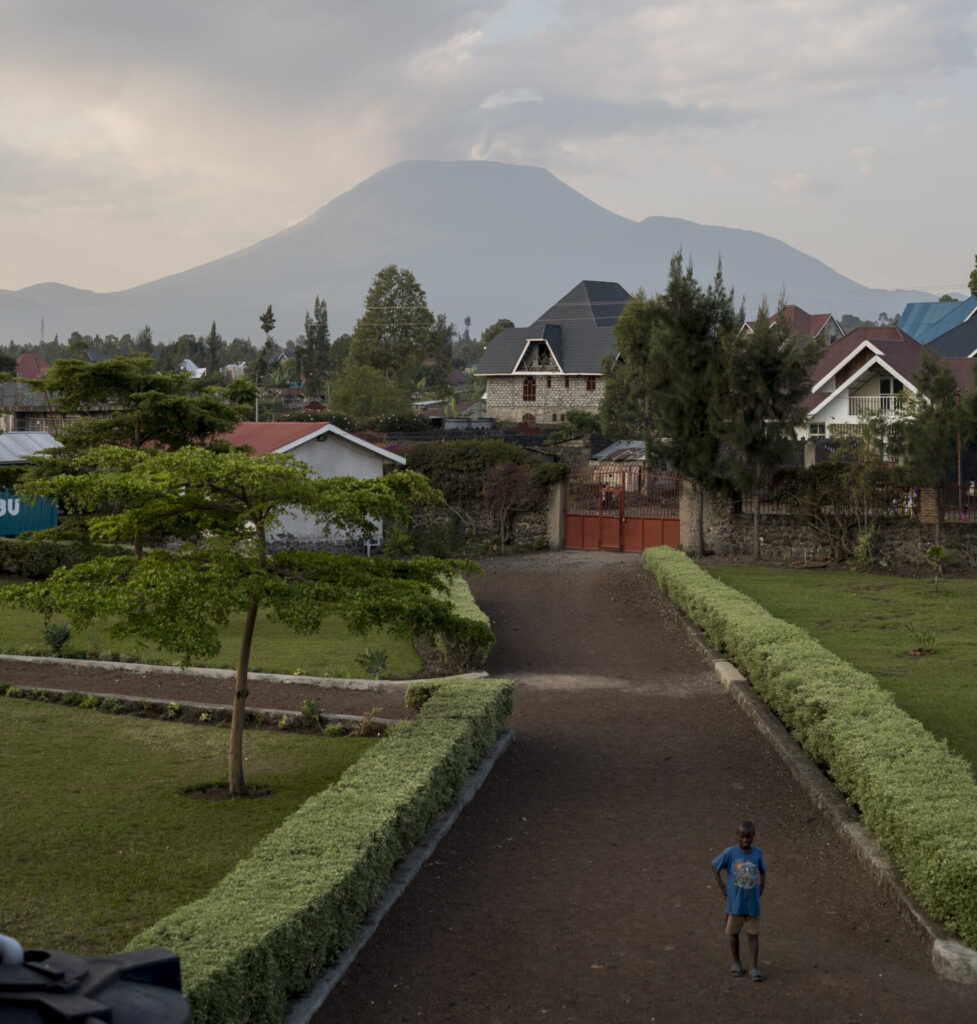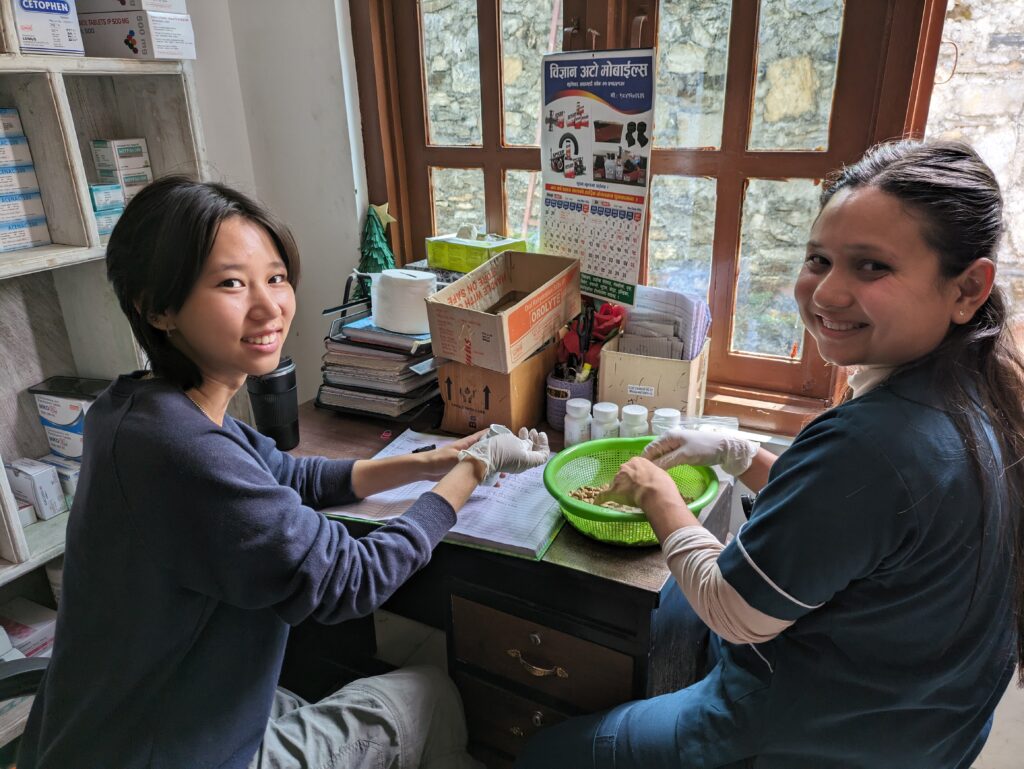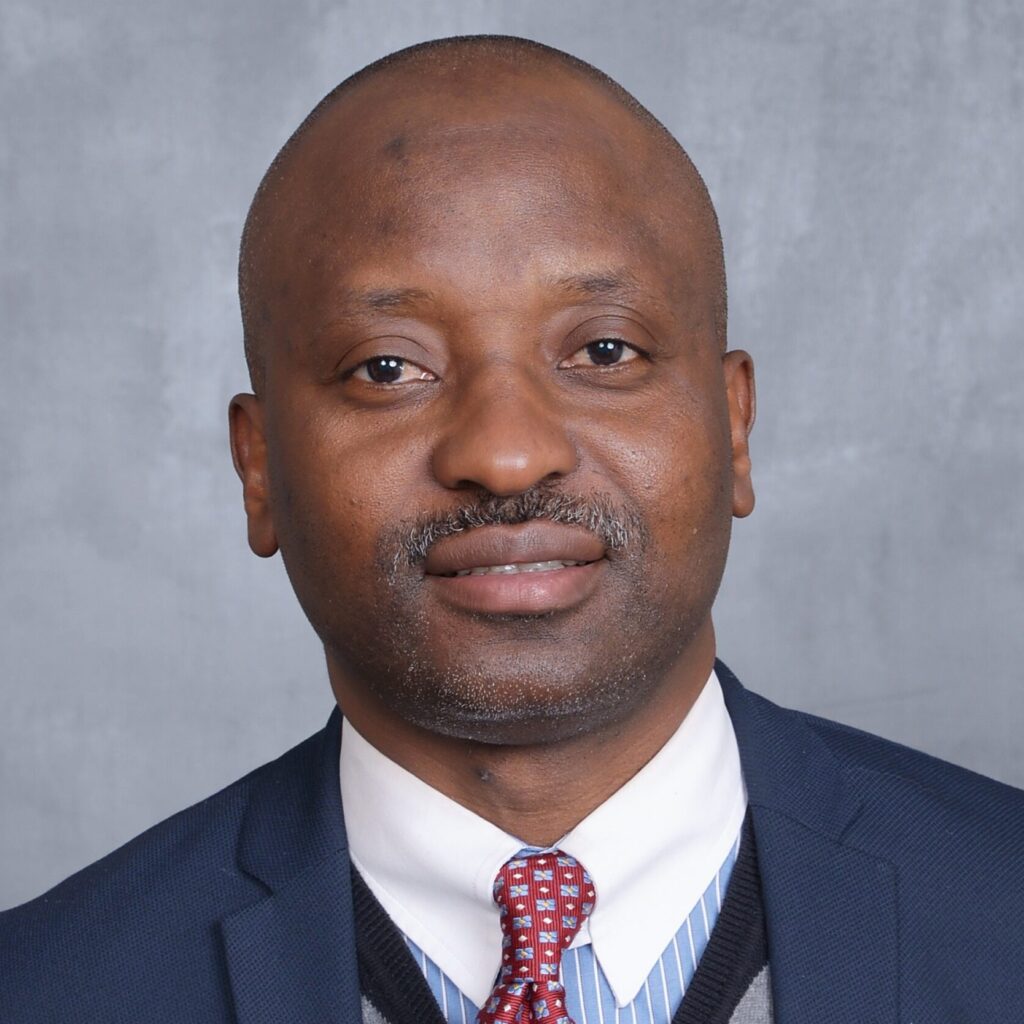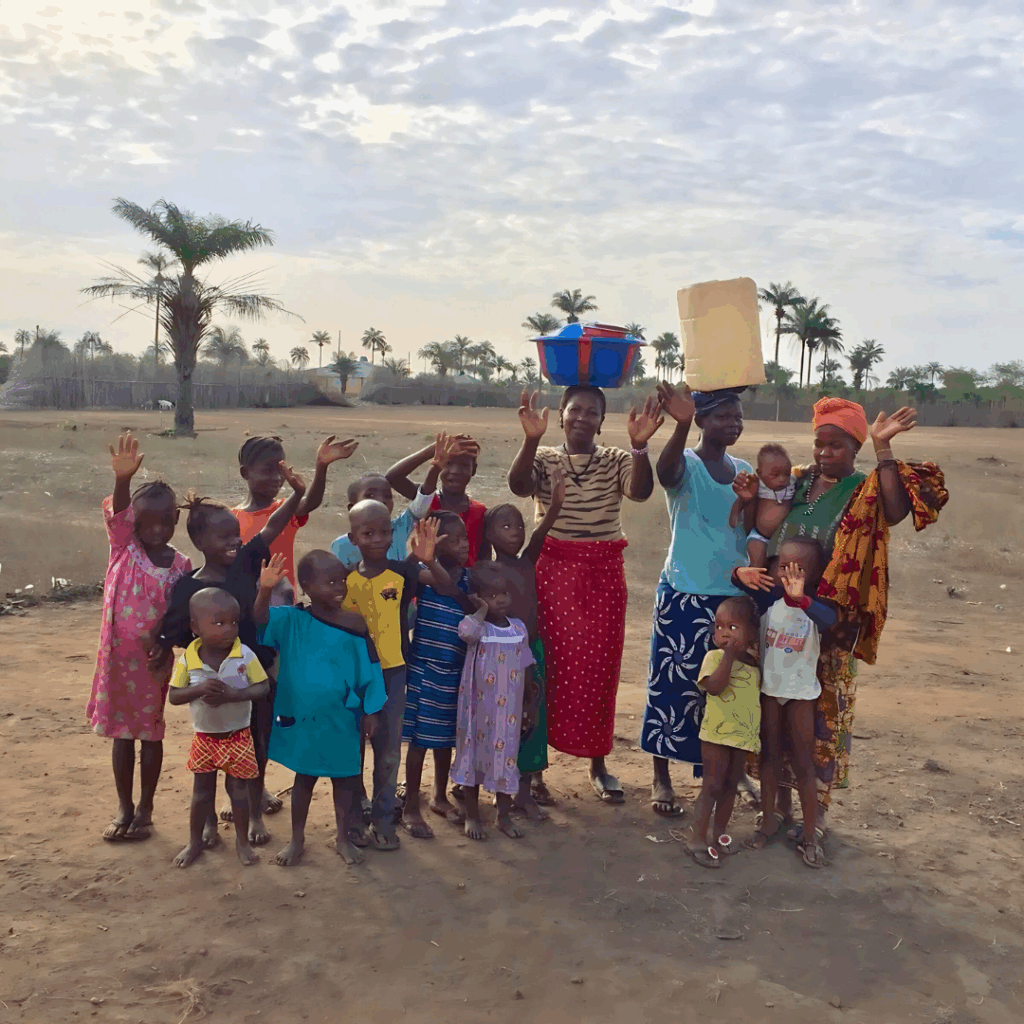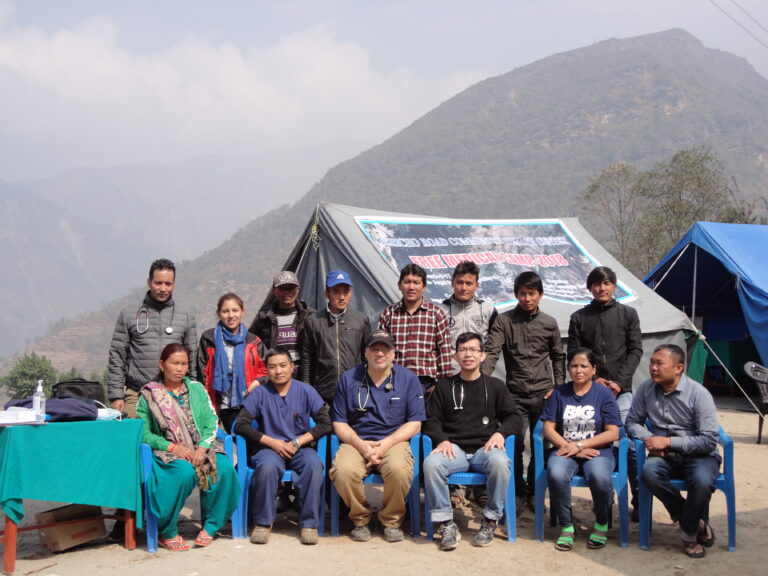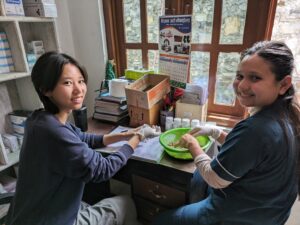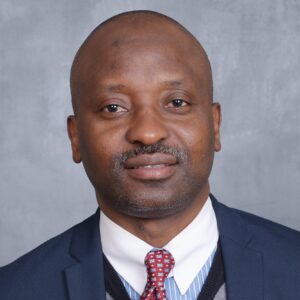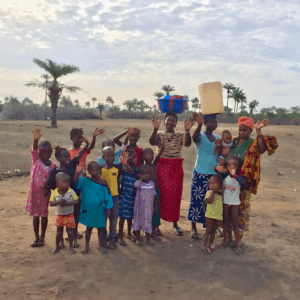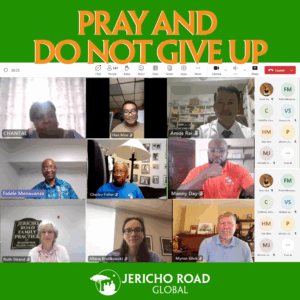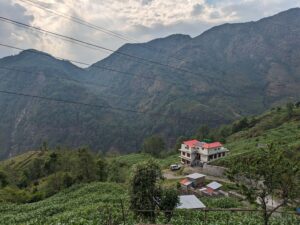Below, please find part-two of Dr. Harding’s reflections from her recent trip to our Wellness Center in Goma. Part-one can be found here.
Goma has its own music, percussive and metallic, variably rhythmic and ametric, and punctuated by human voices talking, calling out, chanting to make the work go faster, calling people to prayer, their motor bikes buzzing and honking. You hear it- or feel it – everywhere you go. The streets are loud and boisterous, and there are people going about their business on every street: cart- vendors in bright print dresses selling food and diesel, calling out to advertise, motor-bike taxi drivers calling out to passengers, friends greeting one another. When we come and go, children run up to us to ask for change or offer to weigh us on kitchen scales they carry around with them. Their little voices are everywhere. At night, there is always music coming from somewhere. And on Sundays, the choirs ring out from here and there, on all sides beautiful and raucous and competing with the bells.
Goma has its own fabric. The people carve chunks of volcanic rock from what once were front yards and alleyways and parks, before they were buried in ash and lava. They grind it into sand, and through whatever alchemy, they make cement. Then, from the cement, they make cinder blocks with which to build, and rebuild, the city which is always just a few years out from being swallowed by the last volcanic eruption. It’s like a house fire in reverse: Cinder blocks from cinders, structures from ashes.
Goma has its own gravity, drawing people to its center of serpentine, ash-dusted avenues and hardpack streets. They come running, the displaced, by the hundreds of thousands. They arrive at a hardstop, at the back of a line of all of those who fled here before them, and begin to jostle for a few feet of ground to hang a tent, or the safest storefront to sleep in. They do not come here because it is beautiful (although it is, very beautiful), or because it promises a better life for them (although there is a hope that they might find it here). They come here with guns at their backs, looking over their shoulders to see if death is catching up with them. Only when the dust has settled, and they have been here waiting for a while, do they have the chance to turn back towards home, and to realize that they may never see it again.
Goma has its own geography. It is a kind of island city-state- but without the surrounding seas. Lying as it does- between the mountain to the north, the explosive lake to the south, the war (or almost war) on all sides- it is a city to which you can wire money, but not mail a letter. You can visit from Kinshasa (or Buffalo, or anywhere), and people will welcome and embrace you as family- but you have to fly, because the roads are patrolled by soldiers, and sometimes they just ask for papers, but sometimes they just shoot. The land is lump-in-your-throat beautiful. You can see lush, green countryside around the city, mountains climbing upon shimmering mountains – so vivid that they could be technicolor cutouts mounted on robins-egg blue cardstock. But you can not walk them freely. Women go into the forest to harvest food to sell and feed to their children- there is no reason to starve in a place with soil this fertile. But they risk their lives every day to do so. People get shot, or raped, or go missing. You can buy peanuts near the soldiers memorial in the morning, and oranges in Rwanda at noon, but you have to get across the border, and the DRC and Rwanda are on the brink of war.
Goma has its own address in history- a name it calls itself that means one thing to the folks who live there and call it home, and something wholly other to the world outside, who watch the blighted city on the news. This address lies somewhere between colonization by Belgium, and economic colonization by the US and China. One could just as easily say that it lies at the juncture between the cold-war, and the coming wars; between the era of global northern imperialism, and the rally and rise of the global south. If any nation in history can do so, the DRC manifests that old saying: “God help you, if you have anything the white man wants.” Goma lies at the coordinates where people end up because their country has wealth other countries want- so much so, that even what little they have for themselves is taken away.
Mama Chantal (Wellness Center Director) is centered, determined, and strong. She feeds us, introduces us to her staff and her family, and creates a circle of safety around our work. On our last day, I asked her what was on her mind. She shook her head, and her eyes were so sad. “In Goma, there are many needs. People suffer.” She went on to tell me about a shooting that had occurred today, in which several people were killed by armed men. What could I say? It was awful. We sat together, and looked out at the hills of Kigali. I was thinking about the homeless mother with her children who seemed to be stationed against a wall on the main thoroughfare near the hotel. When we passed, she would bow her head and hold her hands out. It broke my heart every time- she was miserable, but never pitiful. She was dignified, although I saw the shame she felt for having to beg in order to feed her children. “It gets exhausting, being afraid all the time. It wears a person down.” “Yes!” She said.
Chantal is very brave, and very resourceful. And she loves her home, fiercely. You can tell in the way she fights the tide of dissolution and despair, always looking for ways to expand services in spite of the situation. I wanted to tell her so, but she is also humble and easily embarrassed. If the roles were reversed, I’d have preferred for her to do something to help the people around me, rather than pay a compliment and do nothing. I don’t know how she and her staff do what they do. But I do know Tolstoy, and have read and reread the Three Questions many times as a kid. I reread it again on my third night here. “We can only try to do the next right thing, for each person who needs our help, in the time that we have. We will send you supplies, and bring more when we come back,” I said. “And visit.” “And visit!”
As we were parting, I thought again of the mother on the main street. The last time I saw her, she was sitting in her spot, the Goma silt dusting her face and the wine colored print of her frock. Her toddler was asleep at her breast. For a moment, she was not self conscious, not really thinking about where she was at all. Her eyes were focused out in the distance somewhere, not down- she was lost in thought, following her own footsteps back towards home, or maybe ahead towards home. We turned the corner away from her to cross the border. She leaned her head against the wall, and at that angle I could see her face fully for the first time. I had not realized how terribly young she was. Lifting her face to the sky, she smiled, closed her eyes, and began to sing.
-Dr. Elizabeth Harding

